Minocycline
Uses
Minocycline is used in the treatment of bacterial infections.
How it Works
How Minocycline works Minocycline is an antibiotic that inhibits bacterial growth by preventing the synthesis of essential proteins necessary for bacteria to perform vital functions.
Side Effects
Common side effects of Minocycline include headache, dizziness, itching, and fatigue.
Expert Advice
- Your doctor has prescribed Minocycline to treat your infection and alleviate symptoms.
- Do not skip any doses and complete the full course of treatment, even if you feel better.
- Stopping treatment early may cause the infection to return and become more difficult to treat.
- Minocycline may cause dizziness; avoid driving or engaging in activities that require mental focus until you know how it affects you.
- Diarrhea may occur as a side effect but should resolve once your course is complete.
- Inform your doctor if diarrhea persists or if you notice blood in your stools.
- Notify your doctor if you are pregnant, planning to conceive, or breastfeeding.
- Discontinue Minocycline and inform your doctor immediately if you experience a rash, itchy skin, swelling of the face and mouth, or difficulty breathing.
Related Medications
Minocycline 40mg

₹326.7
MRP ₹398.4
Minocycline 50mg
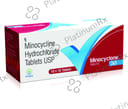
₹190.3
MRP ₹271.9
Minocycline 100mg
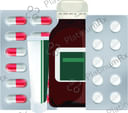
₹625
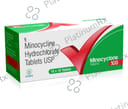
₹294
MRP ₹490
Minocycline 100mg

₹600

₹294
MRP ₹490
Minocycline 100mg

₹367

₹294
MRP ₹490
Minocycline 100mg

₹470

₹294
MRP ₹490
Minocycline 100mg

₹490

₹294
MRP ₹490
Minocycline 100mg

₹275

₹294
MRP ₹490
Minocycline 100mg

₹330

₹294
MRP ₹490
Minocycline 100mg

₹294
MRP ₹490
Minocycline 100mg

₹700

₹270.6
MRP ₹330
Minocycline 100mg

₹386.5

₹270.6
MRP ₹330
Minocycline 50mg

₹189

₹235.9
MRP ₹287.7
Minocycline 50mg

₹221

₹235.9
MRP ₹287.7
Minocycline 100mg

₹2,250
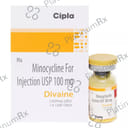
₹3,064.2
MRP ₹3,736.9
Minocycline 100mg

₹3,600

₹3,064.2
MRP ₹3,736.9
Minocycline 100mg

₹3,500

₹3,064.2
MRP ₹3,736.9
Minocycline 65mg

₹298
₹375.9
MRP ₹458.4
Minocycline 65mg

₹433.1
₹375.9
MRP ₹458.4
Minocycline 65mg
₹375.9
MRP ₹458.4
Minocycline 50mg

₹195

₹190.3
MRP ₹271.9
Minocycline 50mg

₹285

₹190.3
MRP ₹271.9
Minocycline 50mg

₹137.3

₹190.3
MRP ₹271.9
Minocycline 50mg

₹365

₹190.3
MRP ₹271.9
Minocycline 50mg
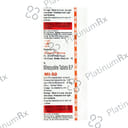
₹281.3

₹190.3
MRP ₹271.9
Flat ₹100 off on first app order | Use Code: APP100 |
Flat ₹100 off on first app order
USE CODE: APP100

Download Now